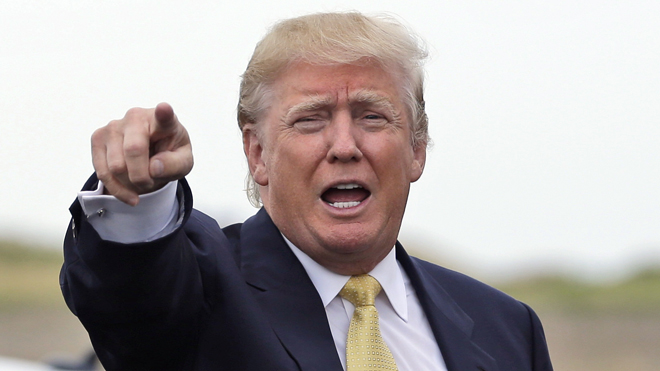Former President Donald Trump’s hit-and-miss declassification effort is back in the spotlight following the FBI’s unprecedented raid at Mar-a-Lago.
Trump’s chaotic declassification efforts continued up to President Joe Biden’s inauguration day, as proven by a recently released declassification memo written by Trump chief of staff Mark Meadows and delivered to the Department of Justice on Jan. 20, 2021. The Biden DOJ declined to release the Trump-Russia records demanded by Trump and Meadows.
It is not known if records relating to the Trump-Russia investigation were taken by the FBI in its Mar-a-Lago raid last week. While the Mar-a-Lago search warrant was unsealed last week, the DOJ is fighting the release of the underlying affidavit justifying the raid.
However, the messy final day request was simply the latest chapter in a yearslong saga that at times tripped up the Trump presidency — sometimes thanks to the behavior of the people in his inner circle.
DOJ OPPOSES RELEASE OF MAR-A-LAGO WARRANT AFFIDAVIT

Former California GOP Rep. Devin Nunes, then chairman of the House Intelligence Committee, made clear his desire to publish a memo on Foreign Intelligence Surveillance Act abuse in early 2018.
The Justice Department pushed back, arguing that “it would be extraordinarily reckless” to release the memo without a DOJ and FBI review and warning about “the risk of harm to national security.” The FBI argued that “we have grave concerns about material omissions of fact” in the memo. FBI Director Christopher Wray reportedly told the Trump White House that he opposed releasing the memo.
Democratic Rep. Adam Schiff (CA), now House Intelligence chairman, argued that “the release of classified information for partisan political purposes crossed a dangerous line.”
In early February 2018, Nunes released the FISA memo, saying, “Our findings … raise concerns with the legitimacy and legality of certain DOJ and FBI interactions with the Foreign Intelligence Surveillance Court.”
Nunes was met by swift backlash from Democrats, and Schiff released his own memo later that month, claiming that “FBI and DOJ officials did not ‘abuse’ the Foreign Intelligence Surveillance Act process, omit material information, or subvert this vital tool to spy on the Trump campaign.”
In September 2018, Trump tweeted that he might carry out “Declassification to find Additional Corruption.” Trump had promised FISA declassification action for a long time, and a White House press release that month said Trump was directing agencies to “provide for the immediate declassification” of materials related to the Page FISA.
But Trump caused confusion that month when he appeared to walk back the press release, tweeting, “I met with the DOJ concerning the declassification of various UNREDACTED documents. They agreed to release them but stated that so doing may have a perceived negative impact on the Russia probe. Also, key Allies’ called to ask not to release. Therefore, the Inspector General has been asked to review these documents on an expedited basis.”
In May 2019, Trump gave then-Attorney General William Barr “full and complete authority to declassify information” related to his investigation of the Trump-Russia investigators, and Barr selected then-U.S. Attorney and now-special counsel John Durham to lead it.
Trump continued his declassification efforts in 2020.
“I have fully authorized the total Declassification of any & all documents pertaining to the single greatest political CRIME in American History, the Russia Hoax. Likewise, the Hillary Clinton Email Scandal. No redactions!” Trump tweeted Oct. 6, 2020, adding that “all Russia Hoax Scandal information was Declassified by me long ago. Unfortunately for our Country, people have acted very slowly.”
However, the DOJ told a judge it was informed the president’s tweet did not count as declassification orders.
Then-chief of staff Meadows told the court he “conferred” with Trump about it and that “the president indicated to me that his statements on Twitter were not self-executing declassification orders and do not require the declassification or release of any particular documents.”
Trump’s October 2020 tweets came hours after then-Director of National Intelligence John Ratcliffe declassified two heavily redacted Russia-related documents, including handwritten notes from former CIA Director John Brennan that showed he briefed then-President Barack Obama in 2016 on an unverified Russian intelligence report alleging that former Secretary of State Hillary Clinton planned in July 2016 on tying then-candidate Trump to Russia’s hack of the Democratic National Committee to distract from her use of a private email server.
Brennan responded to Ratcliffe’s declassification move on CNN, saying, “It is appalling his selective declassification of information that clearly is designed to advance the political interests of Donald Trump.” Nick Shapiro, Brennan’s former deputy chief of staff, said, “Ratcliffe should be ashamed of his blatant politicization of his position.”
CLICK HERE TO READ MORE FROM THE WASHINGTON EXAMINER
Following the Mar-a-Lago raid this month, Trump said he had declassified the records seized by the FBI, with a statement contending he had a “standing order” throughout his presidency that “documents removed from the Oval Office and taken to the residence were deemed to be declassified the moment he removed them.”
“Number one, it was all declassified. Number two, they didn’t need to ‘seize’ anything,” Trump said on Truth Social last week.
Schiff fired off a letter to current Director of National Intelligence Avril Haines requesting an immediate “damage assessment” related to the records the FBI had seized.
“We should determine, you know, whether there was any effort during the presidency to go through the process of declassification,” Schiff told CBS News over the weekend. “I’ve seen no evidence of that.”
